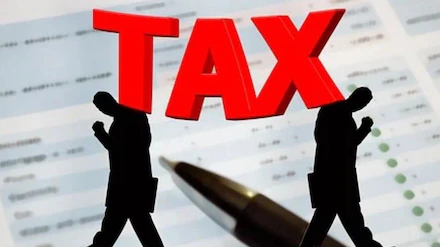In an unprecedented move, the United Arab Emirates (UAE) has announced a 15% domestic minimum top-up tax that will come into effect in 2025. This new policy aligns with global tax reforms designed to ensure that multinational corporations (MNCs) pay a fair share of taxes within the countries they operate. As the UAE continues its efforts to position itself as a global business hub, this initiative will impact businesses operating within the country, especially large, international firms.
What is the Domestic Minimum Top-Up Tax?
The 15% tax is part of the UAE’s commitment to implementing the OECD’s Pillar Two framework, which aims to address tax base erosion and profit shifting by multinational enterprises. This framework is designed to impose a global minimum tax rate of 15% on large corporations. The UAE’s new tax policy mandates that any multinational company whose effective tax rate is below 15% will have to pay an additional “top-up” tax to meet this threshold. This tax will apply domestically, impacting companies that earn substantial revenue from their operations in the UAE.
Aligning with Global Tax Standards
The introduction of the domestic minimum top-up tax demonstrates the UAE’s commitment to harmonizing its corporate tax system with international standards. By adopting this measure, the UAE is reinforcing its commitment to the OECD’s global tax reform initiative, which aims to ensure that companies pay their fair share of taxes in the countries where they do business. The move is expected to promote transparency and reduce tax avoidance, which has long been a concern for governments worldwide .

The UAE’s decision to implement this tax follows other countries’ actions in response to the global tax reforms, notably the European Union and the United States, which have also taken steps to introduce similar measures. The goal is to prevent multinational corporations from exploiting low-tax jurisdictions by shifting profits to countries with lower tax rates, thereby paying minimal taxes in the countries where they conduct business.

Impact on Multinational Corporations
For multinational corporations operating in the UAE, this new tax represents a significant change. Companies with substantial profits but low effective tax rates will need to reassess their financial structures. The introduction of the 15% top-up tax will particularly affect large enterprises that have managed to pay minimal taxes in the UAE due to various tax planning strategies.

This new tax is expected to increase compliance costs for businesses and could lead to changes in their financial reporting and tax strategies. However, the UAE government has indicated that it will continue to offer a competitive and business-friendly environment. The aim is to ensure that the UAE remains an attractive destination for global businesses while contributing to the global effort to combat tax avoidance.
The Road Ahead for the UAE’s Tax System
The announcement of the 15% minimum top-up tax is a step towards the broader tax reforms the UAE is undertaking. In 2023, the UAE introduced its federal corporate tax law, and the country is now working to align its tax framework with international standards. The government’s continued efforts to modernize its tax system reflect its ambition to create a sustainable, diversified economy that attracts global investors while maintaining its competitive edge.
As the world’s tax landscape evolves, the UAE is positioning itself as a leader in tax reform. While this new tax may present challenges for certain businesses, it signals the UAE’s commitment to responsible and transparent taxation that supports both local and global economic stability.
Conclusion
The UAE’s decision to implement a 15% domestic minimum top-up tax for multinational corporations in 2025 is a key milestone in the country’s efforts to align with global tax standards. This move promises to reshape the corporate tax landscape in the UAE and is expected to have far-reaching implications for multinational businesses operating in the region. As the deadline approaches, companies must prepare to navigate the complexities of the new tax system while embracing the UAE’s ongoing commitment to fostering a fair and competitive tax environment .
You can also read about, Unlicensed Lotteries.













